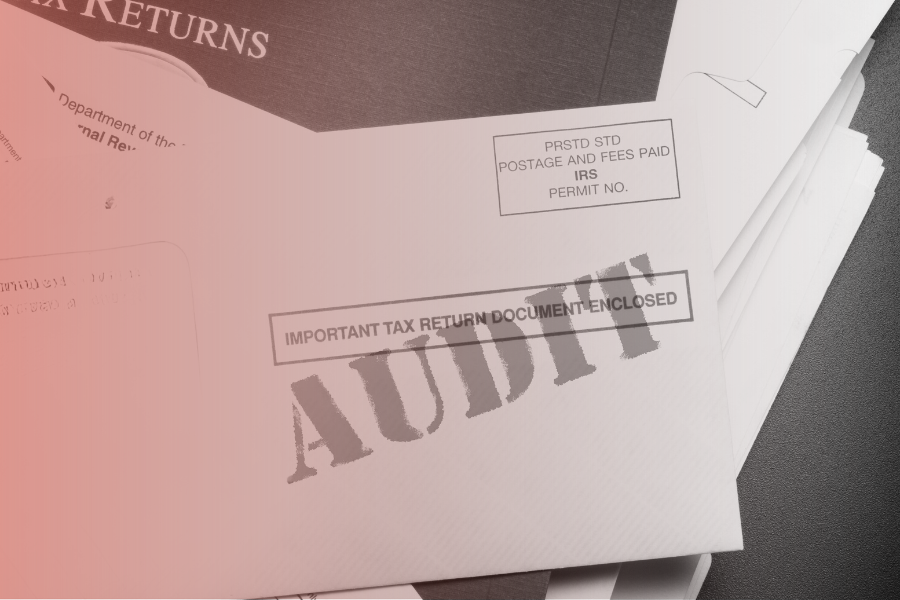Why Form 3520 foreign gift is required when receiving money from abroad
Exactly How Coverage Foreign Inheritance to IRS Works: Trick Insights and Guidelines for Tax Obligation Coverage
Maneuvering the intricacies of reporting foreign inheritance to the IRS can be tough. There specify limits and forms that people should comprehend to guarantee compliance. For example, inheritances exceeding $100,000 from non-resident aliens need particular focus. Failing to abide by these guidelines may result in penalties. Comprehending the nuances of tax effects and required paperwork is essential. The following areas will certainly outline crucial insights and guidelines for efficient tax obligation coverage.
Recognizing Foreign Inheritance and Its Tax Implications
It is essential for them to understand the involved tax ramifications when individuals get an inheritance from abroad. In the USA, acquired possessions are normally exempt to earnings tax, however the estate from which the inheritance comes may have particular tax obligations. Foreign inheritances can complicate matters, as various nations have differing guidelines pertaining to inheritance tax. People have to know that while they might not owe tax obligations on the inheritance itself, they may be accountable for reporting the value of the international property to the Internal Earnings Solution (IRS) Additionally, money exchange prices and assessment techniques can impact the reported worth of the inheritance. Understanding these facets is crucial to avoid unanticipated tax obligation liabilities. Looking for support from a tax specialist knowledgeable in worldwide inheritance laws can provide quality and assurance conformity with both united state and foreign tax obligation demands.

Reporting Needs for Inherited Foreign Properties
The reporting requirements for acquired foreign assets involve details limits and limits that taxpayers must understand. Conformity with IRS guidelines requires the suitable tax obligation types and awareness of possible penalties for failing to report. Comprehending these elements is essential for people getting international inheritances to stay clear of legal difficulties.
Coverage Thresholds and Boundaries
While traversing the intricacies of inherited international properties, comprehending the reporting limits and thresholds established by the IRS is important for conformity. The IRS mandates that U. foreign gift tax reporting requirements.S. taxpayers report foreign inheritances surpassing $100,000 from non-resident aliens or foreign estates. This restriction puts on the overall worth of the inheritance, encompassing all possessions obtained, such as cash, genuine estate, and financial investments. Additionally, any international economic accounts totaling over $10,000 need to be reported on the Foreign Savings Account Report (FBAR) Failing to abide by these limits can result in considerable charges. It is important for taxpayers to precisely analyze the worth of acquired international assets to assure prompt and certified reporting to the IRS
Tax Return Review

Penalties for Non-Compliance
Failing to adhere to reporting requirements for acquired international possessions can result in significant fines for united state taxpayers. The IRS imposes strict laws relating to the disclosure of foreign inheritances, and failings can cause fines that are often significant. As an example, taxpayers may face a fine of as much as $10,000 for failing to submit Form 3520, which reports international gifts and inheritances going beyond $100,000. In addition, continued non-compliance can rise penalties, possibly reaching up to 35% of the value of the acquired asset. Failure to record can also set off extra severe repercussions, consisting of criminal costs for willful disregard. Taxpayers must stay cautious to avoid these consequences by making certain prompt and accurate reporting of international inheritances.
Key Forms and Documentation Needed
When a specific receives a foreign inheritance, it is crucial to understand the vital forms and documentation required for compliance with IRS guidelines. The main kind required is the IRS Kind 3520, which have to be submitted to report the invoice of the international inheritance. This kind provides detailed information about the inheritance, including the identity of the foreign decedent and the value of the acquired assets.
Additionally, if the acquired building consists of international checking account or other monetary possessions, the individual may require to submit the Foreign Savings account Record (FBAR), FinCEN Kind 114, if the complete worth exceeds $10,000. Appropriate documentation, such as the will or estate files from the foreign territory, must likewise be gathered to substantiate the inheritance claim. Maintaining detailed documents read this of all deals and communications associated to the inheritance is vital for exact coverage and compliance with IRS needs.
Tax Treaties and Their Effect On Estate Tax

Comprehending the implications of tax obligation treaties is important for people getting international inheritances, as these contracts can significantly influence the tax commitments connected to acquired assets. reporting foreign inheritance to IRS. Tax treaties between nations frequently give particular standards on just how inheritances are exhausted, which can cause reduced tax responsibilities or exemptions. As an example, a treaty might specify that particular sorts of inheritances are not subject to tax in the recipient's nation, or it might enable for debts against tax obligations paid abroad
Individuals need to acquaint themselves with the details provisions of appropriate treaties, as they can vary significantly. This expertise aids assure conformity with tax obligation regulations while taking full advantage of prospective advantages. In addition, recognizing just how treaties connect with residential regulations is necessary to accurately report foreign inheritances to the IRS. Consulting with a tax obligation expert well-versed in global tax law might be recommended to browse these complicated regulations properly.
Typical Blunders to Prevent When Reporting Inheritance
Although several individuals think they can easily browse the complexities of reporting international inheritances, they typically overlook important details that can cause considerable mistakes. One typical blunder is failing to report the inheritance in the right tax obligation year, which can lead to fines. Additionally, some individuals forget to convert foreign properties into U.S. dollars at the ideal exchange rate, consequently misstating their worth. Another regular oversight includes misconstruing the reporting limits; people might assume they do not require to report if the inheritance is below a certain amount, which is incorrect. Misclassifying the kind of inheritance-- such as dealing with a present as an inheritance-- can make complex reporting commitments. Finally, individuals typically stop working to maintain detailed documents, which is essential for avoiding and verifying claims audits. Recognition of these risks can significantly improve compliance and reduce the threat of monetary consequences.
Seeking Specialist Help for Complex Situations
Steering the ins and outs of reporting foreign inheritances can be frightening, particularly for those with complex economic circumstances. Individuals encountering problems such as multiple international assets, differing tax effects across territories, or elaborate family characteristics may take advantage of professional help. Tax specialists specializing in global tax legislation can provide very useful insights right into the nuances of IRS guidelines, ensuring conformity while minimizing prospective responsibilities.
Engaging a licensed public accounting professional (CPA) or tax obligation lawyer with experience in foreign inheritance can assist make clear reporting demands, recognize applicable exceptions, and plan best tax techniques. Furthermore, they can help in finishing essential forms, such as Form 3520, and handling any kind of added disclosure requirements.
Inevitably, looking for professional guidance can reduce anxiety and boost understanding, permitting people to concentrate on the psychological facets of inheritance instead of coming to be bewildered by tax obligation intricacies. This aggressive strategy can lead to more favorable outcomes in the long run.
Frequently Asked Questions
Do I Need to Record Foreign Inheritance if I'm Not a united state Person?
Non-U.S. people usually do not require to report international inheritances to the IRS unless they have certain connections to U.S. tax regulations. Nonetheless, it's suggested to get in touch with a tax obligation expert to clear up individual circumstances.
Are There Penalties for Falling Short to Report Foreign Inheritance?
Yes, there are penalties for useful content falling short to report international inheritance. Individuals might deal with considerable fines, and the IRS might impose added repercussions for non-compliance, potentially impacting future tax obligation filings and monetary status.
Can I Subtract Expenses Connected To Taking Care Of Inherited Foreign Possessions?
Expenses associated with handling acquired foreign assets are generally not insurance deductible for tax objectives. However, people ought to consult a tax obligation specialist for support tailored to their details situations and possible exceptions that might apply.
Just How Does Foreign Money Affect the Worth of My Inheritance Report?
Foreign money variations can considerably affect the reported worth of an inheritance. When transforming to U.S - reporting foreign inheritance to IRS. bucks, the exchange price at the time of inheritance and reporting determines the final reported value for tax functions
What Occurs if My International Inheritance Is Kept In a Trust fund?
If a foreign inheritance is held in a count Read More Here on, it may complicate reporting requirements. The trust fund's framework and tax obligation ramifications need to be assessed, as recipients might deal with differing tax obligations based on jurisdiction and trust kind.
The Internal revenue service requireds that U.S. taxpayers report foreign inheritances exceeding $100,000 from non-resident aliens or foreign estates. In addition, any kind of foreign monetary accounts totaling over $10,000 must be reported on the Foreign Financial Institution Account Record (FBAR) Individuals inheriting international possessions should generally report these on Form 8938 (Declaration of Specified Foreign Financial Possessions), if the overall worth goes beyond specific thresholds. Depending on the nature of the inheritance, various other types such as Form 3520 (Yearly Return To Report Transactions With Foreign Trusts and Receipt of Particular Foreign Gifts) might likewise be necessary. In addition, if the acquired building consists of foreign bank accounts or various other financial properties, the individual might need to submit the Foreign Financial institution Account Report (FBAR), FinCEN Type 114, if the total worth exceeds $10,000.